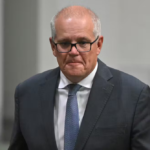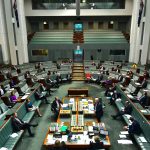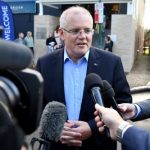No Need for Protocols: Main Game is Voluntary Cooperation
When a controversy blew up last week about The Australian’s reporting of Somali raids in Melbourne, the government immediately suggested it might introduce tough new protocols to control the media.
It was a silly reaction because the newspaper had been more than cooperative. The government should have sought to build on a positive, rather than respond to it with a negative. And anyway, the failure rested with the AFP, not the newspaper.
“Real democracy comes out of many subtle individual human battles that are fought over decades and finally over centuries … [It] is a state of grace attained only by those countries that have a host of individuals not only ready to enjoy freedom, but to undergo the heavy labour to maintain it."
No wonder then that many Australians baulked at Attorney-General Robert McClelland’s recent call for a new Protocol, possibly a revised D-Notice system, to control media reporting on sensitive government operations. Australia needs no such thing.
Encouragingly, the government has now retreated from that position.
It is true that the Australian media runs some stories that drive the nation’s intelligence and police agencies potty. But that comes with the territory in a democracy.
It hardly means that the media deliberately sets out to threaten national security. After all, the media can’t match, and doesn’t seek to, the power and reach of the country’s intelligence apparatus, even if both communities share common forensic skills.
Largely, the media depends for its feedstock on long-term contacts inside the system who provide enough pieces of the mosaic to allow a picture of what’s happening to be presented to the public. Sometimes whistleblowers turn up with a motherload of information, but such scoops are as rare as hen’s teeth – as in the intelligence world.
The media’s general quest to reveal the truth in government affairs usually doesn’t impinge upon national security; but when it does it’s a rare journalist, let alone editor, who decides to publish and be damned.
Damaging the country’s interests is not a charge that media outlets want laid at their door. Hence, there is significant common ground between the authorities and the media and it is best managed and nurtured in an adult and voluntary way. The last thing anyone needs is a schoolmaster stomping around wagging his or her finger. Yet that is precisely what Mr. McClelland was doing, encouraged by agencies whose natural default position is to clamp down on everything.
Regrettably, he couldn’t see that his finger had been diminished by frostbite: it was his ship that had leaked the story in the first place. That is almost always the case. The media doesn’t bug the AFP, ASIO or the State police. It’s ludicrous for the minister to advocate locking the stable door with a heavy iron protocol after the horses have bolted.
That said, from the start the government should have focused on the core issues involved in the Somali raid story.
First, the journalist concerned, Cameron Stewart, appropriately contacted the AFP and let that organisation know what he had. As he explained in an article in The Australian’s Media section on August 10, it wasn’t the whole story but it was enough to run with. Understandably, he was asked to hold off and that’s what he did. Stewart himself once worked in a highly sensitive area of intelligence and appreciates these things.
For the government agencies involved, this was manna from heaven. It doesn’t get any better in intelligence than being able to talk to someone who speaks the same language.
Yet far from holding Stewart up as an exemplar of cooperation, the system (the one that leaked) went on the attack, sending Minister McClelland out with a sawn-off shotgun and Ned Kelly’s armour. And this, despite top agency officials congratulating Stewart and The Australian on their common sense approach.
So what went wrong at the operational interface between the authorities and the newspaper? As Stewart explains, he realised the story would have to be withheld from all early editions of The Australian on the morning of the raid. But those technical production decisions were not his to make. “I relayed that information to the AFP,” he writes, “but urged they nut out the final details directly with [the Editor]. The AFP did not make that final phone call and at no stage did the police tell us what time they planned to raid.”
Neither the minister nor the agencies have addressed that one central point. Instead, they entangled themselves in conflicting stories and accusations, most of which only served to highlight the notorious animosities many of them share. That’s sad, and demeaning, especially when Operation Neath was a great success.
That energy could more gainfully be focused on explaining longstanding failures in security at Holdsworthy Camp, from which rocket-launchers and worse have been stolen over the years. Likewise, the Australian public has never been told how a catastrophic failure in security for the 2007 APEC conference in Sydney (with 21 world leaders in town) allowed ABC-TV’s infamous Chaser team to glide through inner cordons and reach the US President’s hotel. Again, leaked reports a few years ago showed how hopeless security was at Australia’s major airports, yet after more than $200 million was thrown at the problem two Bikie gangs managed to bludgeon a rival to death inside Sydney Airport’s domestic terminal.
The Sunday Telegraph reported on June 28 this year that a man, 21 and of no fixed address, had been found a few weeks before wandering around on the tarmac at the same airport. He was apprehended by an airport cleaner, charged, appeared in court and was fined $200.
These are all stories brought to light by the media; not the agencies or government. In that sense, it would have been more appropriate for the media to have drafted a ‘protocol’ and forwarded it to the Federal Government for endorsement. Thankfully, it appears that that will not now be necessary.
Warren Reed was an intelligence officer with the Australian Secret Intelligence Service (ASIS) for ten years. Trained by MI6 in London, he served in Asia and the Middle East. He was also Chief Operating Officer of the Committee for Economic Development of Australia (CEDA).














